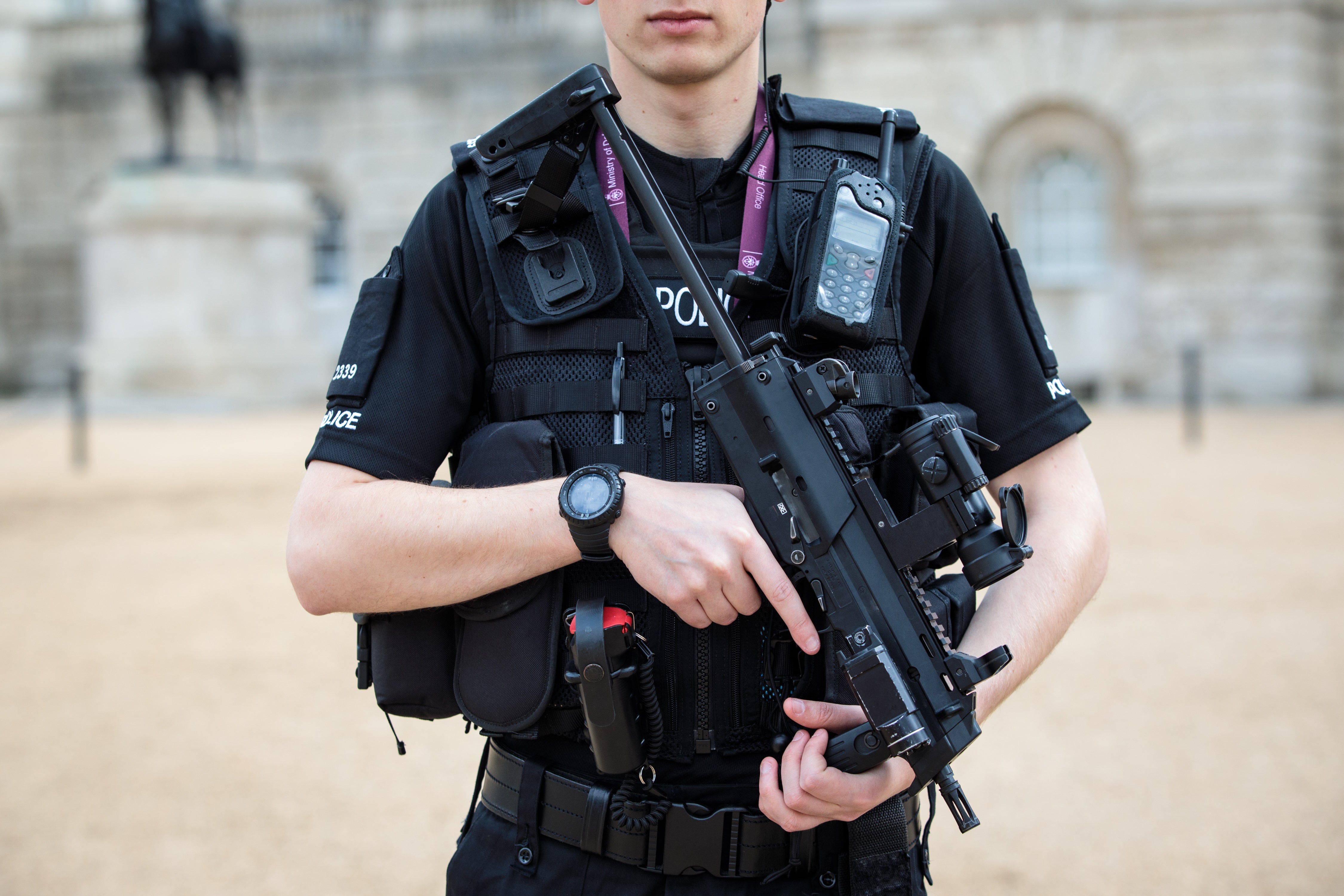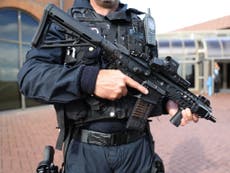More white people arrested over terrorism than any other ethnic group for third year in a row
Overall terror arrests fell to the lowest level in nine years in 2020

The number of white terrorism suspects being arrested in Britain has outstripped those of Asian appearance for the third year in a row.
Official figures show that 89 white people were arrested on suspicion of terror offences in 2020, compared with 63 Asian suspects, 15 black suspects and 18 of other ethnicities.
“The proportion of white people arrested exceeded the proportion of Asian people arrested for the third consecutive year,” a Home Office document siad.
“Arrests of persons of white ethnic appearance accounted for 48 per cent of arrests, up seven percentage points on the previous year. Those of Asian ethnic appearance accounted for 34 per cent of terrorist-related arrests, down five percentage points.”
Of those arrested, 81 per cent considered themselves to be of British or British dual nationals, the highest proportion on record.
But the overall number of terror arrests dropped by one-third to 185, the lowest figure in nine years.
“The reductions were most evident in arrests under non-terrorism legislation and may reflect the general reduction in crime during this period when there were public health restrictions in place,” the Home Office said.
Police said that despite the fall in arrests, the number of terror plots had risen to a total of 28 since March 2017.
Dean Haydon, the senior national coordinator for counter terrorism policing, said: “While the rest of us have been focussed on protecting ourselves and our families from this terrible disease, terrorists have not stopped planning attacks or radicalising vulnerable people online.
“As we follow the government’s roadmap out of the tightest restrictions there will be greater opportunity for terrorists to operate, and we want the public to join the police, security staff and retail workers in a collective community effort to minimise the chance of attack.”
There were falls in the number of arrests across all age groups apart from children under the age of 18, which increased from 12 to 19 in the year.
Deputy Assistant Commissioner Haydon called the trend “worrying”, adding: “Unfortunately we are seeing increasing numbers of young people arrested in relation to terrorism but it doesn’t have to be this way.
“Ideally we would identify when a young person is being led down the path towards terrorism activity and use the Prevent programme to try and put them on a different path.”
Almost one-third of arrests had resulted in a charge by the end of December, just under two-fifths of suspects were released pending further investigation, one-fifth were released without charge and the remainder faced alternative action or have not reached an outcome.
The figures also showed that one in five people behind bars for terror offences in Britain on 31 December were right-wing extremists – the highest proportion since records began.
The “vast majority” (75 per cent) were still classed as having Islamist extremist views.
Police operations against far-right terrorists have increased since 2017, following the banning of National Action. The government went on to proscribe several aliases and other neo-Nazi groups, most recently banning Feuerkrieg Division in July.
The head of UK counter-terror policing has described the far right as the fastest-growing terror threat in the UK, although the majority of attacks and thwarted plots are by jihadis.
Last month, officials lowered the UK’s terror threat level to substantial, meaning further attacks are deemed likely rather than “highly” likely.
Priti Patel said the decision was due to the “significant reduction in the momentum of attacks in Europe” since those seen between September and November.
The decision was taken by the Joint Terrorism Analysis Centre, which previously lowered the UK terror threat level to substantial in November 2019, weeks before an Islamist extremist murdered two people at a rehabilitation event in London.
It was followed by three other terror attacks in 2020 – in HMP Whitemoor prison, Streatham and Reading – all carried out by serving or released prisoners.
They are among 12 such attacks to have taken place in the UK since March 2017 – 10 Islamist and two far-right.
A Home Office spokesperson said: “The police and intelligence agencies have continued to work around the clock to keep us safe throughout this pandemic.
“We are ensuring they have all the tools they need, which is why we are introducing tougher sentences for the most dangerous terrorists and bolstering powers to keep people safe including strengthening Terrorism Prevention and Investigation Measures.”





